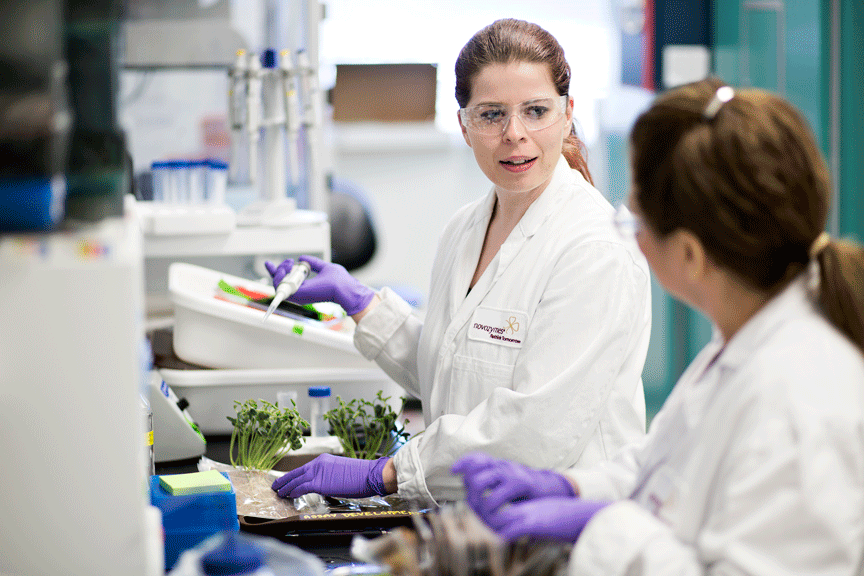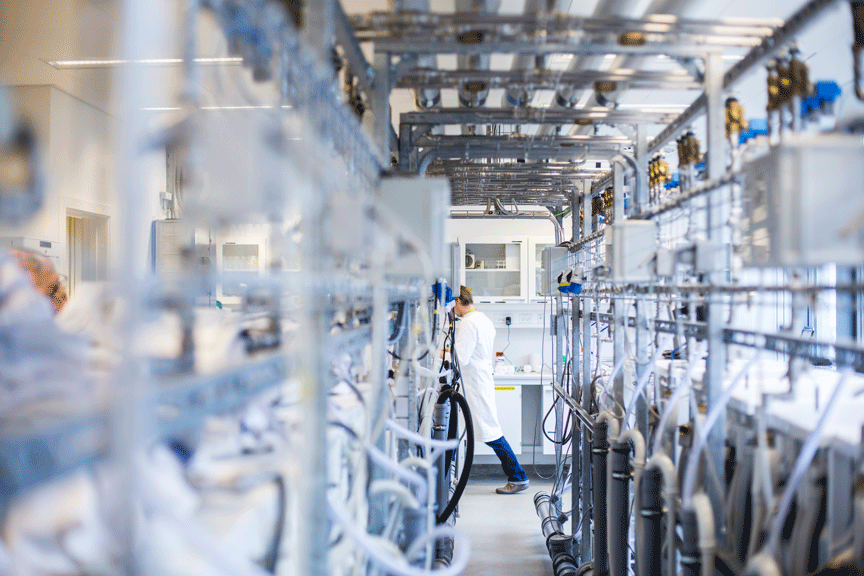 As China looks for solutions to help it transition to a qualitative, balanced economic model, Sara Dai, Asia Pacific President for Novozymes, believes that the answer lies partly with industry – bio-solutions can help steer China on the path towards a sustainable, low-carbon approach to energy and production. But at the same time, she says, a pro-innovation institutional environment and inclusive and effective prudential regulation are crucial for realising the full potential of bio innovations.
As China looks for solutions to help it transition to a qualitative, balanced economic model, Sara Dai, Asia Pacific President for Novozymes, believes that the answer lies partly with industry – bio-solutions can help steer China on the path towards a sustainable, low-carbon approach to energy and production. But at the same time, she says, a pro-innovation institutional environment and inclusive and effective prudential regulation are crucial for realising the full potential of bio innovations.
The changing landscape
The global population is expected to reach nine billion by 2050, radically increasing demand for food and water, energy, and medicine. To accommodate the ever-increasing needs of a growing population, companies need to raise production output while also preserving the planet.
China shares this common concern and has its own unique challenges. Having experienced years of rapid growth, its economic development has now entered a slower phase of growth. While this slow-down is a significant part of the ‘new normal’, it is far from the whole story; of more relevance is the economic transformation and upgrading of infrastructure that China needs to undergo in order to ensure strong, sustainable and balanced growth.
So while the objective is clear, the question is, how to achieve it?
Greening the value chain in diverse industries
Biotechnology is already making the transition to a more ecologically sustainable economy possible by greening value chains in diverse industries such as detergent production, grain processing, food nutrition, textiles, wastewater treatment, bio-agriculture and bio-energy.
For Novozymes, everything begins with some of the smallest components on earth – enzymes and microorganisms. Enzymes are proteins that act as catalysts. This means that they speed up processes in every living organism. When used by industry customers, they reduce consumption of energy and chemicals. Like enzymes, many microorganisms have abilities that can be utilised in various processes. For example, Novozymes works to develop a number of microorganisms that will supply the world’s farmers with a brand new biological toolkit. The microorganisms will act as biological boosters, increasing yield and protecting crops.
Innovation is not only about developing the new economy. It is also about transforming and upgrading traditional industries to give them new vitality. Greener detergents, textiles and other above-mentioned areas may seem unlikely flagships for innovation in a world of smartphones, aerial drones and robotic limbs, but the advances towards sustainable growth brought by bio-solutions are proof of technology that works. Bio solutions help business earn bigger profits, deliver savings to consumers and mitigate climate change. In 2015 alone, Novozymes helped customers reduce their CO2 emissions by an estimated 60 million tons. It is their ambition to significantly contribute to the goal a 100 million ton reduction in CO2 emissions in 2020.
Investing in localised innovation and talent
The Chinese market has become an important business growth engine, so Novozymes continues to invest especially in localised innovation and talent development. Together with local partners, Novozymes vigorously develop innovative solutions to cater to Chinese customer needs and help them to have better solutions with less investment.
Investment in talent development is another focus of Novozymes’ strategy in China. Their talent development and pipeline programmes try to enrich the local talent pool and pipe this talent to the global pool by evaluating the high potentials, training them and engaging them in cross-sectoral and inter-regional projects. The company also works with Chinese universities to promote the application of bio-tech for a sustainable future among young people, investing for future talent.
 Exploring inclusive and effective regulation
Exploring inclusive and effective regulation
The benefits of bio-innovation include lower energy and resource costs for businesses, healthier food for millions of consumers, clean industrial production and a green infrastructure that fosters innovation, jobs and global growth. However, realising the full potential of biotechnology demands a supporting regulatory environment and an effective standards system.
The ongoing reform of the standardisation system in China is expected to build an effective and authoritative standardisation coordination mechanism and boost the level of internationalisation of Chinese standards. However, a significant number of standards organisations in China currently publish both mandatory and voluntary standards, with parts of these standards being neither properly aligned with each other nor with international standards. Existing standards development processes often lack transparency and can even exclude key stakeholders, especially foreign-invested enterprises.
China’s Food Safety Law took effect last October. The industry fully supports the government’s direction and efforts on food safety, and believes that food safety and bio-innovation are not contradictory but can be promoted simultaneously. However, slow approval of new food materials and food additives is becoming a common concern which impedes innovation and development of the food biotechnology industry and downstream industries.
For example, genetically modified fermentation strains can improve enzyme activity and reaction conditions, which will allow enzyme products to play a better role in the food process industry. Such a process is general practice when producing enzyme products around the world and is widely applied in industry. However, the registration for such new products has been pending for seven years in China.
Embracing the future
Modern biotechnology has developed rapidly in recent years, with new findings and applications emerging in an endless stream, such as genome editing technology. If China can explore a more inclusive and effective regulatory environment for modern biotechnology, especially for genetically-modified technology, which has been commercialised and generally applied for two decades, it will prepare China for embracing the greater benefits brought by continually updated modern biotechnology in the future.
Novozymes is the world leader in biological solutions. Together with customers, partners and the global community, Novozymes improve industrial performance while preserving the planet’s resources and helping build better lives. As the world’s largest provider of enzyme and microbial technologies, Novozymes bioinnovation enables higher agricultural yields, low-temperature washing, energy-efficient production, renewable fuel and many other benefits that we rely on today and in the future. NASDAQ OMX: NZYM-B ● 6,500 employees ● DKK 14 billion turnover ● 30+ industries ● 700+ products


Recent Comments